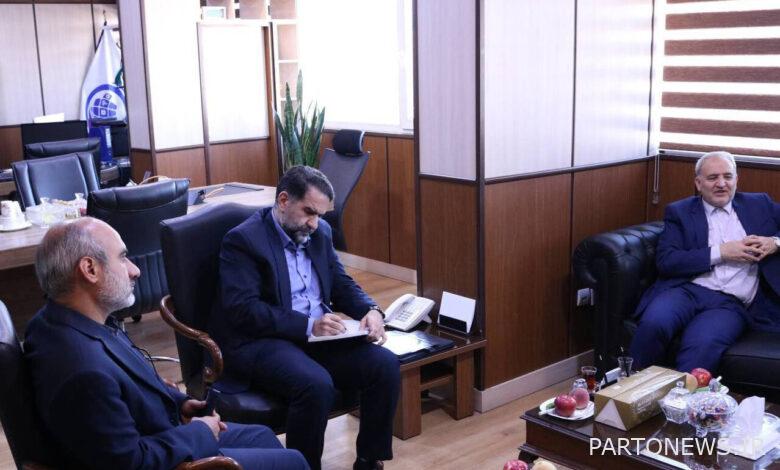The meeting between the head of Satra and the ambassador of Iran in Pakistan – Mehr news agency Iran and world’s news

According to the Mehr News Agency, citing the public relations of the Organization for the Regulation of Inclusive Sound and Image Media in the Virtual Space (Satra), the meeting of Saeed Moqiseh, the head of Satra, and Reza Amiri Moghadam, the Iranian ambassador to Pakistan, with the review of the joint capacities of cooperation between Satra and the representative of the Islamic Republic of Iran in Pakistan was held. In this meeting, Mohsen Qaeminaseb, the deputy of the position, Mohammad Hossampour, the deputy of monitoring and supervision, and Hassan Safar Ali, the director of international relations of Satra, as well as Abbas Mohammad Nejad, the international director of the Broadcasting Organization, and Hadi Golriz, a political expert and the media officer of the Iranian Embassy in Pakistan, were also present in this meeting.
At the beginning of the meeting, while pointing to the common historical and cultural roots, Amiri Moghadam said, referring to the great interest of the people of Pakistan in Iran, Imam and the Islamic Revolution: this interest is considered irreplaceable and a very important capacity in the development of relations between the two sides.
He added: de-escalation in the relations between Iran and Saudi Arabia is one of the important factors facilitating bilateral relations between Tehran and Islamabad, and the new regional conditions are considered a good opportunity to expand and generalize bilateral relations.
The Iranian ambassador in Islamabad pointed to the active media in Pakistan and said: Currently, 35 active channels in Pakistan broadcast in more than 20 languages.
Further, while presenting a report on the activity, licensing and approaches of major Pakistani media, Golriz said: Iran’s media representative in Pakistan has met with more than 300 Pakistani media activists.
He said: The increase in meetings of like-minded people, the frequency of visits and the expansion of media relations between the two countries are considered as the most important factors for improving the media relations of the two sides.
In the continuation of the meeting, while welcoming the guests, the head of Satra said: The regulatory body of Iran’s private sector media in the field of audio and video is Satra, and this organization pursues its legal missions both in the field of supervision and in the field of support and guidance.
He further emphasized: Satra can act as a facilitator in the media relations of the two countries within its scope of authority. The presence of more than 60 million Shias in Pakistan is considered as one of the influencing variables in the cooperation of the parties, and the exchange of experience in the field of regulation, education at macro and micro levels, joint productions by the private sector of the two countries, and broadcasting and display and sale of rights with different models of It is the main areas of cooperation between the parties that are mentioned in the draft memorandum proposed by Satra with the media regulatory body of Pakistan.
In another part of this meeting, titled “Traditional models of regulation in the world”, Hossampour stated: “Transferring the experiences of regulatory bodies through the corresponding institutions and cooperation in the direction of cyberspace governance is one of the important areas of cooperation between the Internet and the Internet.”
Further, Safar Ali presented statistics on the state of virtual space in Pakistan and stated: The number of virtual space users in this country is close to 192 million people, which shows the importance of virtual space in this country.
In the end, he stated: “Pemra” as the main regulatory institution of Pakistan dates back to 2005 and transferring the experiences of this institution can be very useful. Also, signing a joint memorandum with “Pemra” will facilitate cooperation.

